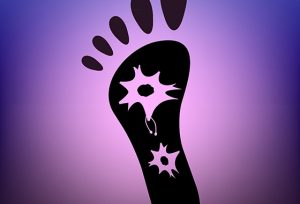Nerve pain can be incredibly painful and difficult to deal with. Since the cause of this pain is usually unseen, it can be difficult to describe to others. Perhaps you find yourself in this situation. Thankfully, there is treatment available to alleviate the pain.
Over the years, our experts at Cayman Neurology have helped many reduce nerve pain by implementing the most advanced pain management treatments. If you are seeking relief, schedule an appointment at our office located in the Cayman Islands today!

Specialties
Neurology
Pain Management
Diagnostic Tests
Therapeutic Procedures
Nerve pain (also known as neuropathic pain or neuralgia) is a type of chronic pain that affects the nerves that transmit information between your brain and spinal cord from your skin and other parts of your body.
Your central nervous system is composed of your brain and spinal cord. Your peripheral nerves spread signals throughout your body to your brain, including signals from your fingers, arms, toes, etc.
When your nerves are damaged, they are unable to communicate properly. Sometimes your nerves may lose the ability to communicate, and this results in the feeling of being numb in certain parts of your body. In contrast, your nerves may sometimes send incorrect pain messages, which can lead to you feeling pain.
Nerve pain can be caused by several medical conditions, medications, and injuries. These may include:
Chronic neuropathic pain is also common and may result from an underlying cause, such as diabetic neuropathy or cancer.
The symptoms of nerve pain are often described as feeling a shooting, tingling, or burning sensation. Additional symptoms of nerve pain can include:
People with neuropathic pain are affected emotionally by the impact this condition has on them. Nerve damage pain is one of the most debilitating and frustrating types of pain a person can experience. It can make it difficult to concentrate or even get a good night’s sleep.
While everyone with this condition is affected differently, you may experience the following:
These feelings are common, and many have found that speaking to a medical professional and others who are experiencing the same thing has proven to be very beneficial.
Your specialist will first try and identify the root cause of your discomfort by asking you about your condition and performing a physical exam. Your doctor may also examine your nerves by testing your muscle strength, checking your reflexes, and seeing how sensitive you are when touched.
Additional tests that may be ordered could include:
Once the root cause is identified, your specialist will be able to treat neuropathic pain properly and help provide relief.
No, not all nerve pain conditions are identifiable. However, even if your pain is unidentifiable, it can still be treated through pain management techniques and treatments. You can still find relief!
Neuropathic pain can be treated by means of various techniques and treatments, which include:
We will tailor your individualized treatment plan to meet your specific needs. Our team at Cayman Neurology is dedicated to helping you manage your pain every step of the way!
While neuropathic pain is challenging to treat entirely, the good news is that it is not usually life-threatening. With the assistance of our specialists at Cayman Neurology, you will be able to manage your pain properly and continue leading a normal life!
If you are dealing with neuropathic pain, it is essential to talk to your doctor about the best treatment options for you. There are effective ways to manage your chronic pain while still living a normal life. With the proper treatment, neuralgia does not have to control your life.
Schedule an appointment at our office located in the Cayman Islands today. Our specialists look forward to helping you relieve your pain and move forward with your life!
Copyright © 2024 Cayman Neurologist. All Rights Reserved.